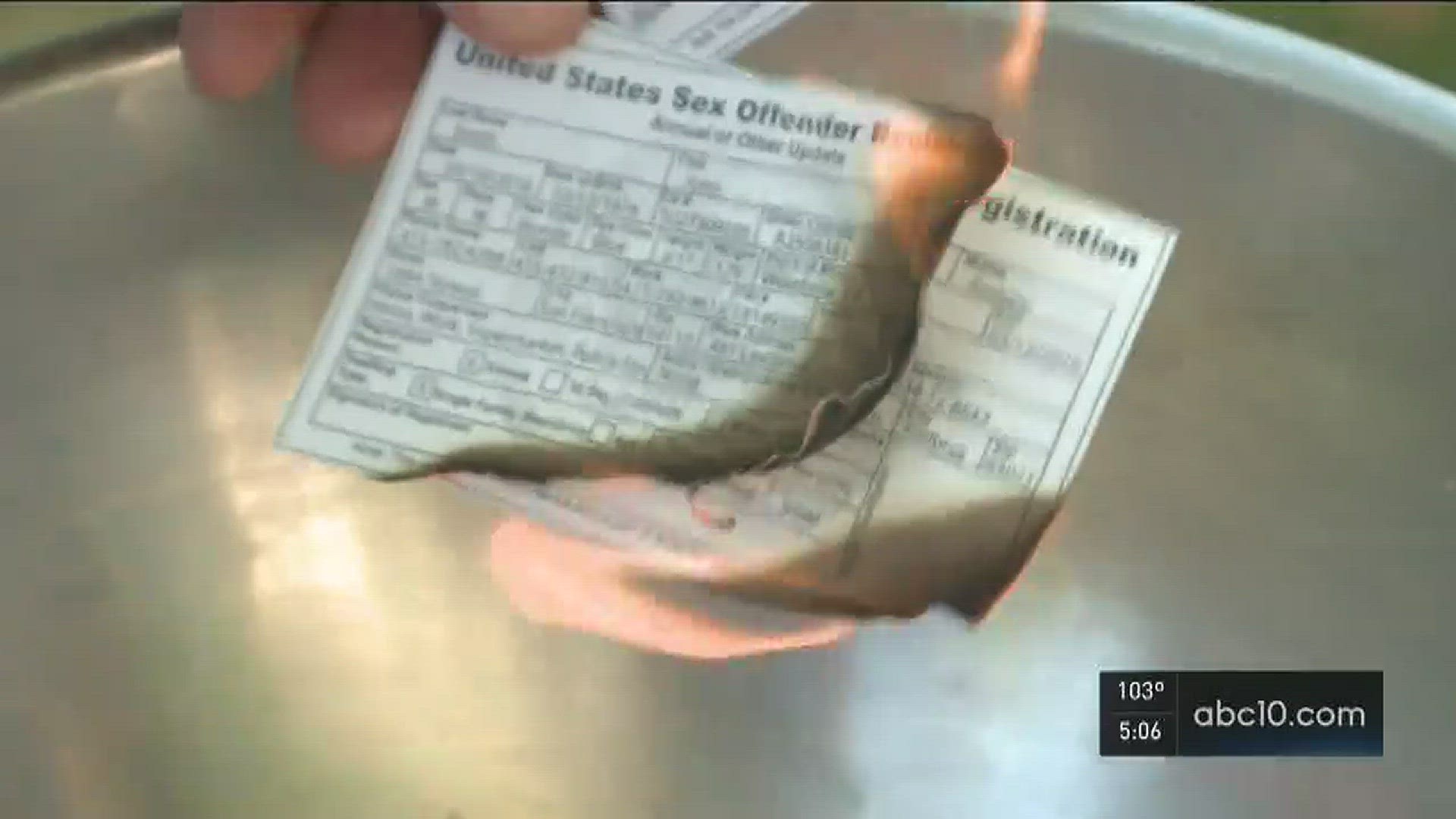Sex offenders from across the country gathered today at a federal court in Oakland to fight against what they say is a violation of their First Amendment rights.
Frank Lindsay, a board member of California Reform Sex Offender Laws says local and federal sex offender laws “are banishing (sex offenders) slowly out of society. That is not a space that we felt was a constitutional space for the nature of our country, promoting freedom.”
Seven sex offenders convicted of offenses involving minors filed a lawsuit in February fighting some provisions of International Megan’s Law to Prevent Exploitation and Other Crimes through Advanced Notification of Traveling Sex Offenders.
The law, signed by President Obama in early February, authorizes the Department of Homeland Security to issue notifications to foreign countries when American Sex Offenders plan to travel abroad and requires the State Department to include a unique identifier in an offender’s passport.
“When most people think about the First Amendment, all they think about is the right to say something, but you also have a right to be silent, and the fact is with this law you cannot remain silent,” said Janice Bellucci, the attorney representing the lawsuit’s plaintiffs.
Protesters held up signs that equated this measure to the laws of Nazi Germany and the Soviet Union.
“We’re only the third nation in the history of the world that has ever stamped the passports,” said Derek Logue, who traveled by bus from Ohio to join the protest.
A woman walking by who noticed the posters approached and questioned protesters, “What about the people who have been sexually offended? Where are their rights?” She says, “Can someone be reformed? Possibly. Typically I don’t think they are reformed, typically they offend again and again.”
This is a notion that the organizations present today contested, claiming that laws against sex offenders are based on fear and emotions as opposed to science and facts. The Department of Justice quotes sexual recidivism rates for male sex offenders at 14 percent. Critics of sex offender laws say Megan’s Law casts too wide a net and makes it difficult to keep track on high risk offenders.”
A protester who chose to keep her identity concealed spoke of a false sense of security that Megan’s Law gives parents. “I didn’t know what to look for, I thought if I just look at the registry and make sure they don’t go anywhere near those people on the list, (my children) would be safe and they weren’t.”
Someone within her family abused her daughter and she has since become an advocate for reform.
“There’s 850,000 men, women and children registrants across the nation, some are children as young as eight- and 10-years-old who are in there for things like playing doctor.”
Vicki Henry runs Women Against Registry (WAR), which advocates for the families of registrants. Her son was charged of possession and distribution of child pornography. “They are on a hitlist because they are on the list,” she said.
“With these marks we are going to have other nations equate Americans with sex offenders and traffickers even,” Henry said. “And I think that we’re probably going to start seeing some day is Americans being turned away at the border if they are not sex offenders.”
“They may not care about us personally, but it’s going to affect all Americans at some point” said Logue who runs a support site for offenders “Mexico is already turning away sex offenders at the border, Japan does it, South Korea does it.”
The judge hearing arguments on both sides today will decide whether to deny or grant the government’s motion to dismiss. If granted, plaintiffs say they are ready to start the process in a different court.

